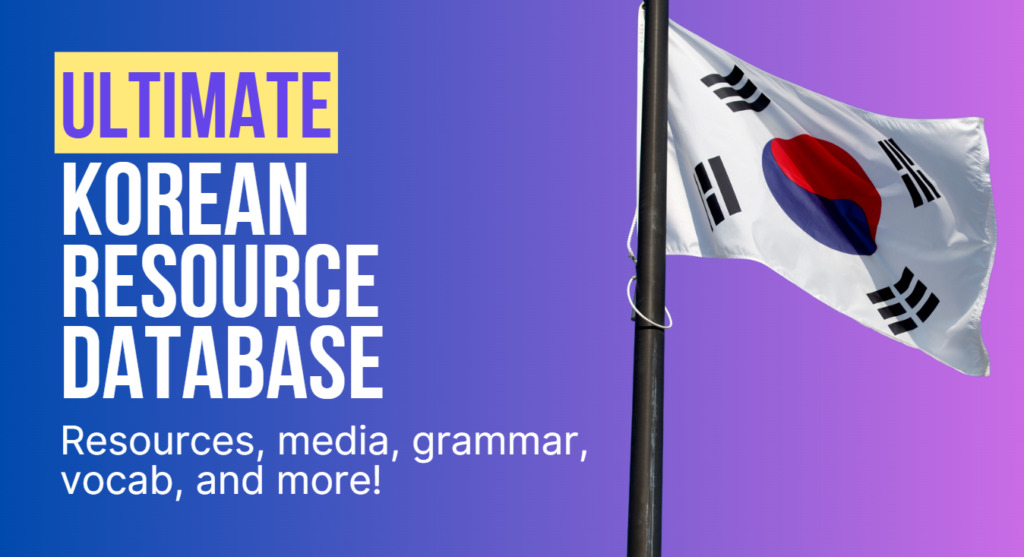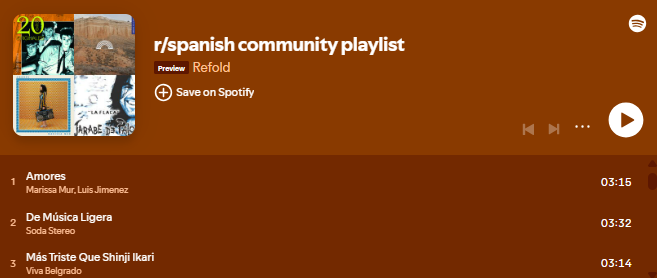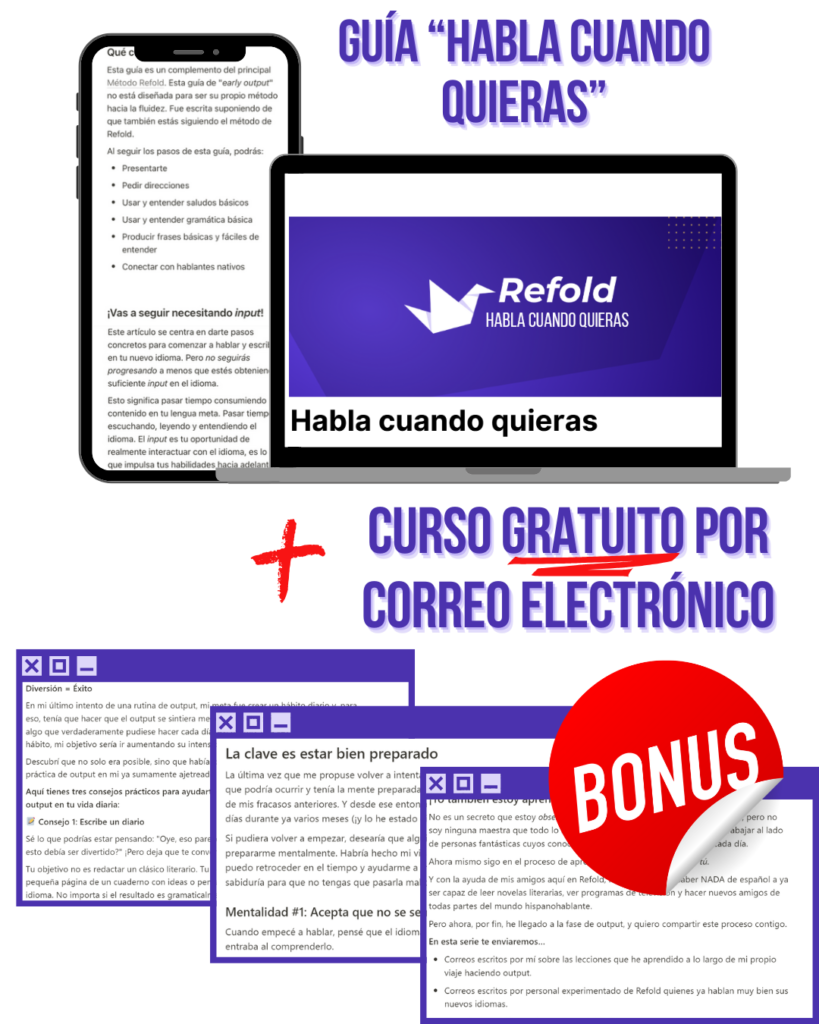Using books to increase your vocabulary is one of the easiest and most effective ways to grow your language skills.
While many language learners rely on flashcard apps like Anki for vocabulary review, Anki definitely isn’t for everyone. And while there are Anki alternatives like the Goldlist method, sometimes even that can feel like too much.

In this post, we’ll share a simple, no-flashcard method for reviewing words from the books you read. It’s a lazy, stress-free approach that ensures you encounter new words regularly and review old ones without feeling overwhelmed.
Whether you’re reading for fun or learning, this strategy is one of the best ways on how to build vocabulary while enjoying the process.
Why Books Are Perfect for Vocabulary Acquisition
The beauty of using books to improve vocabulary is that learning happens naturally as you encounter new words in context.

Books are immersive, engaging, and they allow you to explore language in its real-world form. Here are more reasons why books are ideal for vocabulary-building:
- Contextual Learning: Words learned in context are easier to remember than isolated word lists.
- Reinforcement through storylines: Books naturally repeat key vocabulary, reinforcing new words over time.
- Varied Vocabulary Exposure: Reading introduces you to a wide range of words, from everyday language to more advanced literary terms.
The immersive nature of books ensures that you’ll come across new vocabulary, and their unique advantages make them the perfect tool for improving your language skills.
You Don’t Need the Best Vocabulary Apps
You can enjoy all the benefits of reading books to increase your vocabulary without any proper review. But while vocabulary practice activities are technically optional, they can speed up your language acquisition process.
Combining immersion from reading with strategic review turns your book into a powerful tool for expanding your vocabulary.
So, am I out of luck because I’m on an (indefinite) Anki/Goldlist break?
Absolutely not!
I’ve figured out a super easy way to regularly review the new vocab I encounter in books, and today, I’m going to share it with you.
Digital vs. Physical: What is the Best Format of Books to Improve Vocabulary?
Before we dive into my review strategy, let’s answer a common question: Should you choose e-books or physical books to expand vocabulary?

Do you need to hunt down the only Hunger Games edition in Korean in your country? Or spend hours searching the internet for a digital version of a local book that’s not even on the most obscure platforms?
Well, I have good news! Whether you prefer e-books or physical books, both are great for increasing vocabulary. Here are some of the advantages for each format:
- E-books: Instant access, built-in dictionaries, and the ability to highlight and bookmark words easily. E-readers let you quickly check definitions or translations.
- Physical books: Offer a tactile experience. Writing notes, underlining, and flipping through pages can improve memory retention. Manual annotation forces deeper engagement with the text, making it a more active learning process. Plus, physical books can feel more satisfying for some learners.
Both formats have their strengths, but the best choice is the one that makes you excited to read. Whether you prefer the convenience of an e-book or the hands-on nature of a physical book, both will support your vocabulary growth—and both work for this method!
How to Build Vocabulary Effortlessly Using Books

Now that we’ve covered the basics, let me introduce you to Bree’s Lazy Vocab Review Strategy (okay, the name might need some work)—an effortless way to recall new words without creating complex study systems. It’s incredibly simple, and I’ve found it easy to stick with, even on my laziest and least motivated days.
You don’t need the best vocabulary apps or a fancy notebook for this method. All you need is:
- Your book — It can be digital or physical; it doesn’t matter!
- A way to underline words — For e-books, simply tap and highlight. For physical books, I recommend using a pencil (but you can use a pen or highlighter if that’s your style).
- Bookmarks — For e-books, use the digital bookmark feature. For physical books, sticky notes work well, but you can also use scrap paper, real bookmarks, or even dog-ear the pages (if you’re a psychopath).
Now that you have your supplies, here’s how it works!

- Bookmark where you start reading. This will help you track where to return for review later.
- Underline or highlight the words you look up. For physical books, you can annotate with numbers and write definitions in the margins for easy reference (optional).
- Place a second bookmark where you finish reading. Keep looking up words and underlining until you finish reading, and place a bookmark when you finish. This ensures you know where to pick up next time.
- Review the words from the previous day the next time you read. Start from the first bookmark and look at each word. Try to remember the meaning, then read the word in context. This creates a natural recall process.
- Repeat! Keep repeating this cycle for effortless, ongoing review.
What sets this approach apart from methods like Anki or Goldlist is its simplicity. You’re still reviewing vocabulary, but in a way that feels natural and fits seamlessly into your reading routine, making it easier to stay consistent even when motivation is low.
Extra Challenge: Review it Again!
Wait about a week, then go through the words again, chapter by chapter, starting from the beginning. This final review will strengthen long-term retention, which is often a key goal when considering the best way to memorize vocabulary.
To stay organized, just add a third bookmark!
Hint: Your bookmarks should look something like this:

By using books to increase vocabulary in a relaxed, stress-free way, you can turn your reading sessions into powerful language-learning tools. Whether you’re flipping through a paperback or tapping through an e-book, this strategy ensures you continue growing your vocabulary with minimal effort.
So, why not pick up your next book and give it a try? With just a few bookmarks and some intentional reading, you’ll be expanding your vocabulary in no time!
Like what you see?
Sign up now and we'll deliver even MORE amazing content like this right to your inbox!
- Receive our exclusive 6 SECRETS to language learning success email course.
- Stay motivated with weekly emails overflowing with helpful language-learning tips, tutorials, and more!
- Get behind the scenes access into the inner workings of Refold!








